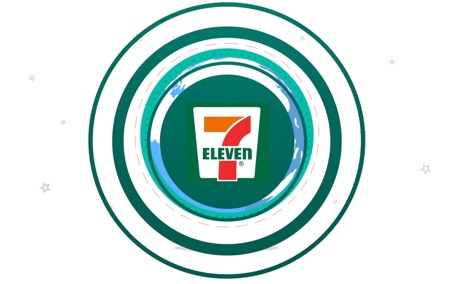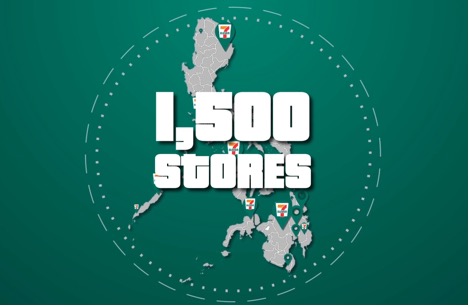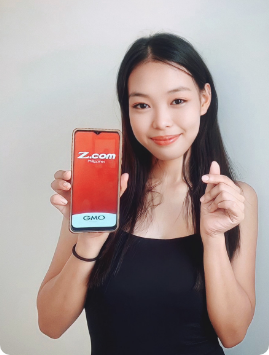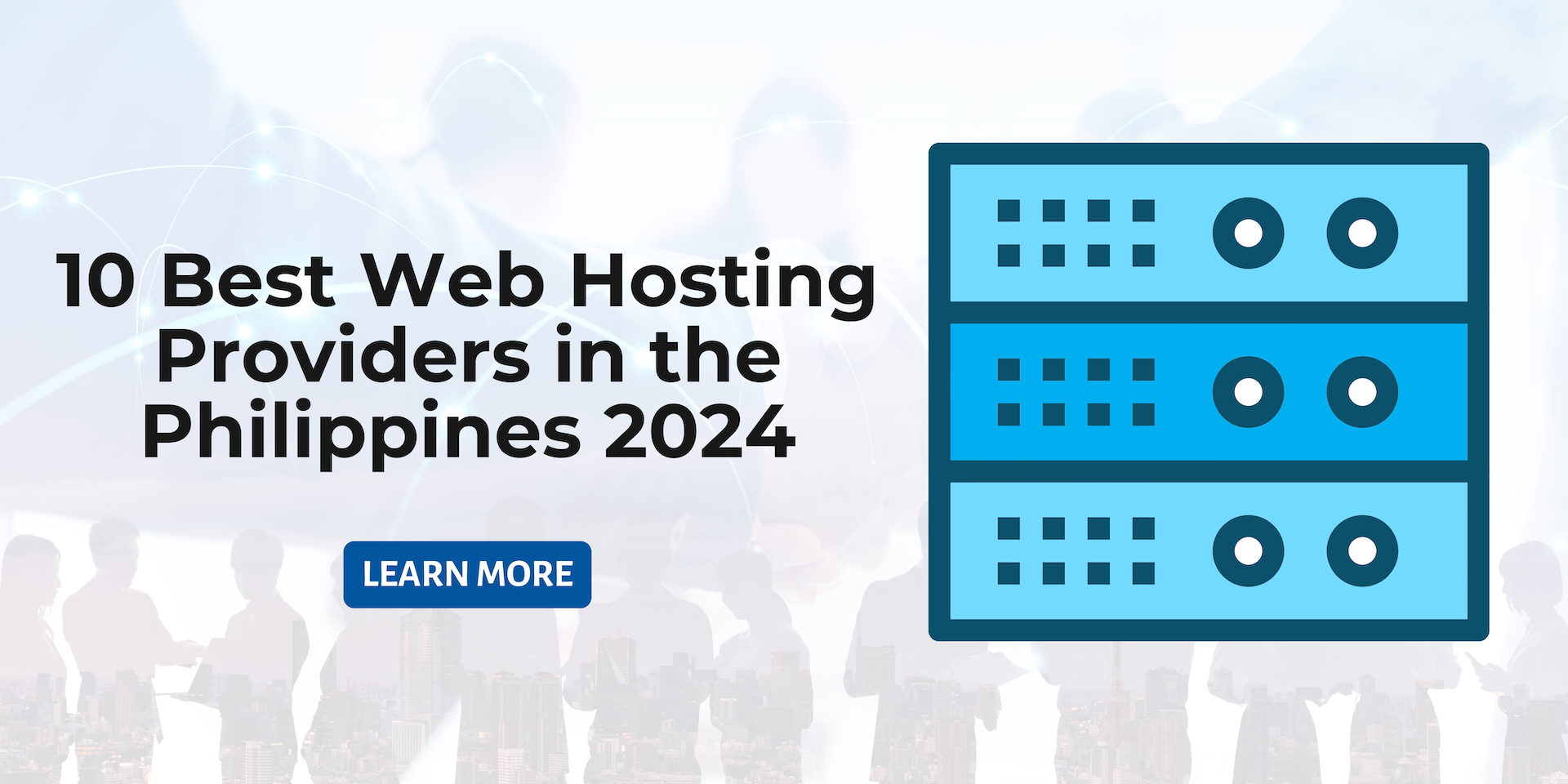A Full Guide to Setting Up a 7-Eleven Franchise in the Philippines
The franchising business is booming in the Philippines. In fact, it's currently a billion-peso industry, a far cry from the 1980s when it was barely in its infancy.
Most of this growth is brought about by foreign brands. It's no wonder why savvy investors are now interested in contracting franchisees from these big brands, particularly 7-Eleven – one of the most well-known chains of convenience stores in the world.
That said, franchising is no walk in the park, and mistakes in the process can easily cost you millions of pesos. So, if you want to minimize potential issues during your franchising journey, you need to have a deep understanding of everything involved in the franchising process.
Fortunately, that's what we're going to discuss in this article. The next few sections can serve as your ultimate guide for making your 7-Eleven franchising journey a success. Read on to know how!
What are Franchises?
Before we delve into the nuts and bolts of franchising one of the most well-loved convenience store brands in the world, let alone the country, we should have a basic understanding of what a franchise is and how it works.
To say it simply, a franchising agreement is one where a business provides a license for other entities to conduct business using their business model and brand.
These licenses are sold at a premium, and the price naturally varies depending on the market value of the franchising business. Nevertheless, a franchise relationship means that the franchiser, also known as the original business, creates a continuing relationship with the franchisee, also known as the entity that wants to buy the business model.
This continuing relationship ensures that the franchisee gets training, branding, and even some management experience, all of which are designed so that the franchisee can be operational on the business model that they bought as soon as possible.
There are several main types of franchising arrangements between businesses.
- Manufacturer to Retailer. This relationship is when the franchisee agrees to a franchising contract that retails certain products from a manufacturer, such as vehicle dealerships.
- Manufacturer to Wholesaler. This agreement is between a franchising manufacturer and a wholesaler. The franchisee, in this case, is given the right to distribute a franchisor's products to other retailers, like bottle agreements between soft-drink sellers, for instance.
- Wholesaler to Retailer. Here, retailers enter into a franchising agreement with a wholesaler to carry and distribute specific products that the wholesaler offers, such as automotive products and hardware stores.
- Retailer to Retailer. The most well-known franchising agreement is when a franchisee purchases a retailing business strategy, branding, and products. A good example of this is a franchise of 7-Eleven stores, which allows franchisees to copy the same business format.
What is a 7-Eleven Franchise?

Now that we know the basics of franchising, let's talk more about 7-Eleven and what it takes to become a 7-Eleven franchisee in the Philippines.
7-Eleven, also known as 7/11 or 7-11, is a global chain of convenience stores that has built its name on availability and top-notch quality. This company started from an ice house storefront in Dallas, Texas, in 1927.
In the decades since then, they've grown to be massively successful because of their excellent service quality and consistency.
One of 7-Eleven's promises is to have the same level of high-class service in all of their over 70,000 international franchises and operations. In the Philippines, 7-Eleven has become synonymous with convenience and has made its mark on the daily lives of Filipinos all around the country.
Everybody has gone to a 7-Eleven at least once in their lives, with many now relying on this franchise chain for their immediate daily necessities.
As a result, 7-Eleven is one of the biggest franchising convenience stores around, with 3,136 branches around the country and about 30% market share of the industry.
If you get a 7-Eleven franchise, you will be one of the 1,540 franchises in the country that have been licensed to carry the store's business model, branding, and products. This means that for a tidy sum and some hustle, you will have your very own thriving 7-Eleven franchise for less than the effort of starting your convenience store brand from scratch.
The Benefits of Getting a 7-Eleven Franchise
7-Eleven is one of the most well-known convenience stores across the world because of its large success in marketing its product and its brand. However, that doesn't automatically mean that you should own a 7-Eleven franchise yourself.
Before you can decide whether you want to take the franchise or not, we need to understand the advantages of having a 7-Eleven franchise.
- Brand recognition and reach. This convenience chain is known across the world. Everybody knows what they can expect from a store like this, which means you can spend less time marketing and more time focusing on stocking up and selling items.
- Turnkey franchise model. With a 7-Eleven franchise, everything is taken care of for you. This includes buying/leasing a physical location, constructing a building, training your staff, etc. All you will have to do is walk to the front door.
- Standardized systems. 7-Eleven's entire international business model is standardized, and you can immediately make money off of it as soon as you start operating. This includes the store's interiors, product placement, employee uniforms, and much more.
- National buying power. The company leverages established and high-quality vendor relationships to give franchisees significant buying power over the country's top brands.
- Extensive support. 7-Eleven provides tons of training, support, and advice to franchisees. You will undergo intensive training on the company's business model and processes so that you're caught up to speed, and you will establish a continuing relationship with the company throughout your journey.
These are just some of the biggest benefits of owning a 7-Eleven franchise.
The franchising industry is versatile and persists even in periods of market changes, so franchisees can rest assured knowing that a successful company like 7-Eleven will continue to grow and provide them with a solid stream of income for years to come.
How to Get a 7-Eleven Franchise in the Philippines

Now that we have a little background, we can start learning about franchising 7-Eleven stores in the country.
Requirements
Getting a 7-Eleven franchise may be straightforward, but it's not always easy.
The company will review your application first before they grant you the business licenses and training that you need to conduct to mimic their business strategy, and it's through this review process that the company grants licenses to those they deem capable.
It would be very unfortunate if you spend all that time and energy and then end up being denied, so it's best to know what to expect before you send an application.
Here are some of the requirements for getting a 7-Eleven franchise in the Philippines.
- You need to be at least 25 to 60 years old.
- Must have finished any vocational course or completed 72 units in any college course.
- Have a solid financial background and can fund the investment needs of the franchise.
- You need to be willing to operate as part of the 7-Eleven system and standards.
- Must be willing to oversee daily store management as a Store Operator.
- Must undergo full-time training that can last from four to eight weeks.
- Management, retail, commerce, or customer service experience in business is a plus.
Aside from those application requirements, there is also a 7-Eleven franchise term of service that you need to pass.
How Much Does a 7-Eleven Franchise Cost?
The franchising fee for acquiring the license to market on 7-Eleven is a tidy sum of 600,000 PHP, which you will pay right after they approve your franchising application. However, that's not the only price you will pay for the entire endeavor.
Other expenses include 170,000 PHP for initial store supplies, 800,000 PHP for starting supplies, and about 2.03 million PHP for construction costs.
All told, the entire expense of getting a franchise of this company would amount to 3.5 to 5 million PHP.
However, these are only estimates. While the franchising fee is set at 600,000 PHP, the other expenses, such as supplies, merchandise, and location or construction, can vary greatly depending on availability. There could also be other miscellaneous expenses, such as the following:
- Employee expenses
- Inventory variations
- Bad or faulty merchandise
- Permits and licenses
- Local taxes
- Charges in your bank account
- Other miscellaneous expenses
Plus, you also have to budget for emergencies and other unforeseen expenses that can happen during your operation.
How Do You Get Started in Franchising 7-Eleven?

Starting a franchising business is no walk in the park for everyone involved. Even though some parts of the job are already set in stone for you, there's still a lot of work to be done on your end. The very act of licensing and establishing your 7-Eleven store requires serious dedication, strategy, and hard work to pull through.
Nevertheless, this difficulty can be somewhat lessened if you know what to expect on the franchising journey.
In this section, we'll talk about the specifics of your 7-Eleven franchising journey from start to finish.
Step 1: Self-Evaluation
As mentioned, running a 7-Eleven franchise might be profitable and fulfilling, but it's not the easiest thing to do.
In order to have a successful franchising journey, you need to have patience, willpower, and even cash. Before you start the entire process of approving your franchise, a thorough self-evaluation is necessary to find out if you're ready for such a big responsibility and financial risk.
Here are a couple of evaluation criteria that you can use to judge your readiness.
- Budget. You will likely be shelling out significant amounts of money to acquire the licensing, fund the creation, and initiate the operation of your store. Learn how much your financial capability is and know your options to increase your capital.
- Other resources. What other financial resources or assets do you have that you can leverage for operating your franchise? List down any properties you can transact for capital, potential investors you might know, credit options you have, etc.
- Knowledge and skills. You can create a strategy for running your 7-Eleven franchise depending on what knowledge, training, and inherent skills you have, so carefully evaluate your capabilities.
- Interests. The same is true for this factor. If you have a deep interest in running the 7-Eleven business model, you can leverage this emotional investment to help you run your franchise. In contrast, be more vigilant if your interests lie in another direction.
- Goals. Ask yourself why you're going through the rigorous process of owning and operating a franchise – having clear goals helps you orient your efforts in more positive directions.
Step 2: Signify Your Intent To Own a Franchise
If you've already determined that this is a business you want to get into, the next step is to reach out and contact 7-Eleven. They call this the Initial Contact stage, and it's where you will submit your application and attend your franchise briefings.
However, in-person franchise briefings are currently put on hold because of the pandemic.
For now, you'll have to reach out to 7-Eleven via email to discuss the franchising application process. They will then assist you in your franchising journey and conduct an online franchise briefing for your benefit.
Step 3: Go Through the Prequalification Stage
The pre-qualification stage is where you will choose your location or have your location be converted into a 7-Eleven facility.
This company offers a turnkey franchising model, which means that they will be the ones to provide everything to you and your store. They'll lease you the equipment, supply you with the merchandise, and even the location of your store.
You have two choices in the prequalification stage: to choose a store from 7-Eleven's catalog of potential business locations or to have your place be qualified to become a store.
If you don't have a property or an existing business, you can easily choose from 7-Eleven's list. For this, the process will become much easier since you won't have to go through all of the hassles of finding and acquiring a property yourself.
On the other hand, if you have an existing property or store, you can ask 7-Eleven to evaluate your property first.
If it passes the evaluation, you can turn that into your 7-Eleven store instead of buying another one. This method is ideal for those who already have existing locations and businesses, although you will have to undergo a pretty strict evaluation to pass the standards set by the company, such as the following.
- Being in a prime location with high foot traffic
- Corner location with capacity for double frontage
- If in a non-corner location, a site with 10 to 12 meters of store frontage
Step 4: Create Your Business Plan
The next step is to create and present your business plan.
Your business plan is what will guide your financial and physical efforts towards creating sales and taking careful financial steps. Thus, you need to have a solid business plan to help you maintain a proper heading despite whatever market changes and industry challenges you might face.
Plus, it's also part of the application requirements of the 7-Eleven franchise.
The company will evaluate your business plan and determine the profitability of your score, at which point they'll either accept, reject, or ask for some parts of your application to be modified if there's something that doesn't pass their standards.
Step 5: Interview and MOA Signing
If your business plan passes its initial stage, you will then be interviewed by the corporate franchising team. This is where they'll get to know you as an individual and see if you're fit to become a 7-Eleven franchisee.
If you pass all three interviews, legal documents will then be prepared for you to study and sign. In this phase, you need to make sure that you have a full understanding of the franchise you're buying into, and once you're sure that you know the ins and outs of the business, you can then go ahead and sign the Memorandum of Agreement between you and the company.
Step 6: Training
Where the previous steps gave you book knowledge of the 7-Eleven operations, in this section, you will go through hands-on training that will let you understand intimately how the company operates.
The company provides a variety of training on different topics, such as operations leadership, business strategies, inventory, bookkeeping, and more.
7-Eleven provides intensive briefings and training to ensure that you can deliver on the quality that the company's brand demands. You will have to attend all of these training programs as part of the requirements before you open your own store. You can reach out to the company's specialists, who will be there to assist you every step of the way.
Step 7: Preparation and Accomplishment of Legal Requirements
Throughout the entirety of the application process thus far, you will most likely already be accomplishing legal requirements for your business.
However, in the phase after your training and before store turnover, you will have to iron out all of the legalities before you can open your store to the public. It's best to comply with all the legal requirements that come with opening a business and establishing a franchise because you won't have to keep on worrying about it when you start your business running.
Here are a couple of legal requirements that you'll have to comply with before you can open your 7-Eleven franchise.
- DTI registration of your business name
- BIR registration and taxation specifics
- Business Permit
- Register for everything you need to be a legal employer, such as with SSS, PhilHealth, Pag-IBIG, DOLE, etc
- Bank account legalities and specifics
- Store site permits and building codes
Note that all these legal requirements don't necessarily have to be in order. You can start with some and continue with the others as you go along.
The point of this stage is merely to ensure that you have your house in order before you can finally open your store.
Step 8: Store Turnover and Opening
After four to six months, if you have everything down pat with your application, legalities, and training, the construction of your establishment will be well underway.
You will then be given a date for the turnover of your store, which officially means that the company has completed the building, and all you have to do is stock it with supplies before you open your doors.
If everything goes well, your store will be turned over within the time frame, and you can now launch your 7-Eleven store to the public.
Things to Watch Out For: Myths About Franchising in the Philippines

Source: BusinessWorld
As you can see, franchising can be a difficult ordeal. It can be made easier if you have the right information at hand, but the difficulty doubles if you happen to fall into traps and misconceptions that many people have about franchising businesses in the country.
In this section, we'll debunk some of the biggest myths surrounding the franchising industry in the country and present to you more likely scenarios instead.
Franchising Guarantees The Success Of Your Business
At first glance, one might instinctively think that franchising guarantees success. After all, you already have a well-known company brand and time-tested business strategies; working your franchise business must already be easy.
The reality couldn't be further from the truth.
There is no "guaranteed success" for any business endeavor, including franchises. Any self-proclaimed businessman that tells you there is no risk in a business is either a fool or believes that you are a fool.
Franchising a 7-Eleven establishment still has inherent risks.
You're going to face the same challenges that other businesses have: market instability, loss of customers, and marketing and advertising challenges. And, of course, you still need to face all of these things.
The only difference is that franchising a big brand such as 7-Eleven ensures that you already have a path that you can follow, plus plenty of support from corporate, which means that you won't have to blindly grope about for a solution on your own.
Everyone Can Open A Franchise
This might sound good and inclusive, but it often sends the wrong message that franchising is an investment that's suitable even for beginners.
Franchising a store, even a big brand such as 7-Eleven, requires a good mixture of business acumen, financial resources, leadership skills, dedication, and even business experience. While everyone can certainly acquire those characteristics if they put in the hard work, it's not accurate to say that opening a franchise is something that even a neophyte can do.
Thus, the more accurate thing to say is that everybody can gain the skills necessary to open a franchise.
Your 7-Eleven Franchise Will Work Anywhere
Like other forms of business, you still have to match your franchise concept to the market and location where you plan to open your business.
Different places will have different conditions, market demographics, and demands, which is why success varies for every establishment. Even if it's a widely-known brand, if your services are not in demand in that market, you will still find it challenging to gain a strong customer base.
Fortunately, the 7-Eleven franchising team will help assess your business plan, which includes the proposed site for your new store.
With this assistance, potential franchisees can first determine the viability of their location before they waste a lot of time and resources in a 7-Eleven franchise that turns out to be a bust.
Franchising Is Purely Passive Income
Many so-called businessmen market franchising opportunities as something that you can "set and forget." This is often done to entice first-time and inexperienced investors who might be looking for a business with low maintenance.
The truth is that you will still need to put in the work, even if you're franchising a 7-Eleven. The good thing is that you can now delegate some tasks to your employees, but you can't just sit back and do nothing while expecting the cash to flow in.
While you might eventually reach the level where your franchising business is a stable source of passive income that you can designate to other people, the initial stages of opening your store practically require that you have an active hand in everything that the store conducts, from opening to closing times.
One of the main requirements to get a 7-Eleven franchise is that the franchisee should be willing to be a hands-on store operator, at least at the very beginning.
Moreover, you will also have to shell out money beyond your initial investment to respond to emergencies and changes in the market, such as fluctuating market prices, inventory mistakes, employee emergencies, and more.
Thus, while franchising can become something purely passive, you will need to be active in its operation for a long while before you reach this level.
Your Franchise Training Will Provide All the Knowledge You Need
The corporate training that your franchise will provide will give you the basic set of tools that you need to get started on operating your store. While this means that you're going to start with a good grasp of the fundamentals needed to run your new 7-Eleven branch, this doesn't mean that your learning stops there.
As markets change and the external situation continues to evolve, store owner-operators need more and more advanced expertise and experience necessary to succeed.
This means that you will have to learn from experience, along with other forms of more structured learning such as conferences, skills, workshops, and more.
Everything You Need to Know to Set Up a 7-Eleven Franchise in the Philippines
Setting up and running a 7-Eleven franchise is a great opportunity for profit and self-growth. However, it's also significantly difficult to do so, and you will have to pour time, resources, and dedication to successfully run your franchise.
Nevertheless, things become a lot easier once you know what you can expect from this endeavor.
That's what this article is for. We outlined everything you needed to know about setting up and even running a successful 7-Eleven franchise so that you know what to expect and can face the challenges head-on.
Now, all that's left is for you to turn your plans into reality. Good luck!
FAQs
Which franchise should I get?
What franchise you open is entirely up to you. You need to evaluate your own capabilities, financial resources, and interest to determine what type of franchise will be most appealing to you and what brand you find might work the best.
However, if you want to work in the convenience store industry, one of the best franchises you can have is the 7-Eleven franchise. It has the potential to be highly profitable because of its wide brand recognition, rapid growth, and turnkey franchising format.
What should I do if my franchise application is rejected?
Not all of your attempts will be perfect ones. If, by some chance, your franchise application was rejected, you should regroup and try again. The first thing you have to do is figure out the reason for your application's rejection. Talk to the franchising board and try to come up with a solution for any potential issues that you might have.
Some of the most common issues that applicants face are insufficient financial capital, wrong store locations, incomplete application requirements, etc.
How much do I need to franchise a 7-Eleven in the Philippines?
Franchising a 7-Eleven store in the Philippines requires a significant amount of capital, amounting to about 3.5 to 5 million pesos, according to the 7-Eleven franchising website. However, these are only ballpark estimates, and the actual amount can be more or less on a case-by-case basis.
PROMO
FREE Web Hosting
for Your Website



